It’s frustrating when you need just 1 leek for a recipe, but the supermarket only has a packet of 3 or 4 leeks you just know you won’t end up using before they go bad. So, what can you do with those leftover leeks? Freeze them of course!
Can You Freeze Leeks?
Yes, you can freeze leeks for up to 10 months. To freeze leeks successfully, trim and slice them, then blanch them to lock in their flavour before placing them in the freezer. (Full Instructions Below – Chopped, Whole, Green Tops, Blanching, Etc)
Do Do Leeks freeze well? Yes
Can you refreeze Leeks? No
How to Freeze Leeks
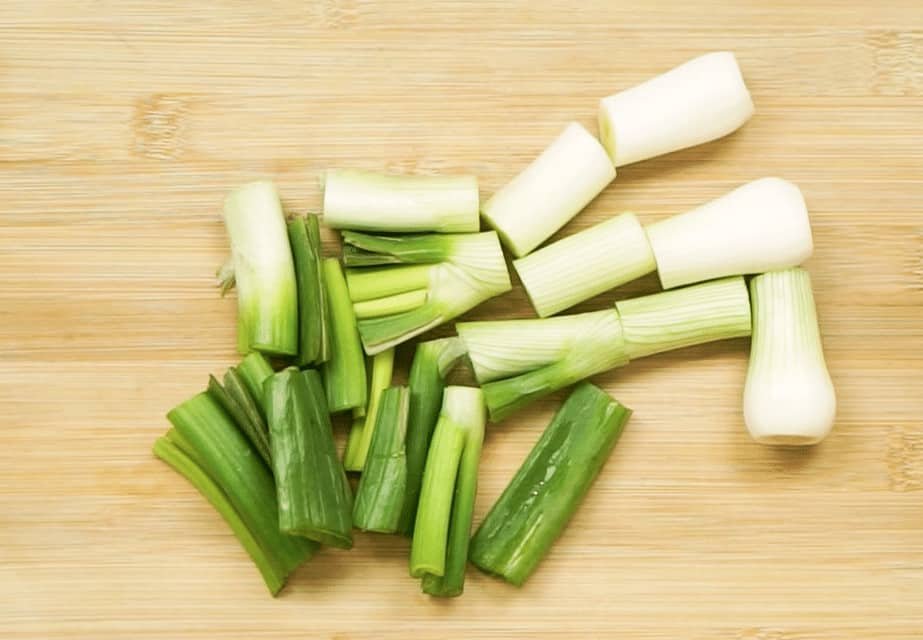
Blanch, Blanch, Blanch!
I don’t know how many times I need to go on about it but blanching is key. I know it involves an extra pot and a bowl of water but the improvement in quality you’ll get is well worth the effort.
How to Freeze Leeks in Different Forms
The humble leek is a lot more versatile than many people give it record for. You don’t just have to slice it into rings and boil it. Below I’ve covered a few popular ways to prepare leeks and how I then freeze them:
Chopped
Chopping leeks into smaller pieces is my preferred method for freezing. I thoroughly clean the leeks, chop them, then blanch them in boiling water for about 2 minutes. After blanching, I immediately plunge them into ice water to halt the cooking process, then drain and pat dry.
I lay them out in a single layer on a baking sheet and freeze them before transferring them to a freezer bag. This way, I can grab the amount I need for my recipes.

This method works for any form of chopped leeks whether you’ve thinly sliced them or chopped them into large chunks.
Whole
Freezing whole leeks isn’t recommended due to their large size and the changes in texture that can occur when freezing. But if freezer space isn’t an issue and you have a surplus of leeks, it’s possible.
After cleaning the leeks, dry them, then wrap them individually in plastic wrap before placing them into a freezer bag.
The main drawback is that defrosted leeks might lose their firmness, becoming softer and somewhat slimy. Of course, if you’re plan is to use them as the base of soups, stocks or sauces then this won’t matter too much.
Green Tops
Leek green tops can be quite tough. There’s this misconception that they are a waste product. A part of the leek that’s of no use. But they are wonderful for adding flavour to stocks and soups.
After washing and drying them, I typically freeze them whole or roughly chopped in a freezer bag. Add them directly from the freezer to your pot when ready to use them.
How to Freeze Leeks Cooked In Different Ways
In the same way that leeks can be prepped in different ways, there are a few ways you may want to cook and then freeze them:
Sauteed
After sauteing leeks in butter, let them cool completely before freezing. Then, spread them in a single layer on a baking sheet to freeze before transferring to a freezer bag or airtight container.
Boiled
Before you freeze them, it’s worth knowing that boiled leeks can be frozen but tend to become quite soft upon defrosting.
After boiling, cool the leeks and pat dry with kitchen towels before freezing. I usually freeze them flat on a baking sheet before transferring to a freezer bag to prevent them from sticking together.
Roasted
Roasted leeks have a wonderful caramelised flavour that can be preserved by freezing – somewhat, at least!
After roasting and cooling, I place them in a single layer on a baking sheet to freeze before transferring them to a freezer bag. When ready, they can be reheated in the oven straight from the freezer.
How Long Can You Freeze Leeks?
Leeks will keep for a surprisingly long time in the freezer… That’s if you go through the effort of blanching them beforehand! I know it’s a faff, but it’s well worth it in the long run.
If you have blanched the leeks to help lock in their flavour and nutrients, you can keep them in the freezer for around 10 months.
If you didn’t spend time blanching them, I recommend keeping them in the freezer for 2 months. Beyond this time, you may find the flavour is lacking and then what’s the point in having them in the freezer in the first place?
Unprepared, untrimmed leeks will last for around 2 weeks in the fridge. Once prepared, they will need to be used within 24 hours.
How Do You Defrost Leeks?
The good news is that you don’t need to defrost your leeks. You have two options:
Boil
Bring a large pot of water to the boil, salt it, and then tip your frozen leeks in. Give them 5-8 minutes, depending on the size of the pieces, until cooked through. They will thaw in the boiling water reasonably quickly.
I do find that boiling frozen leeks results in fairly bland leeks that have lost their subtle onion flavour. If you’re just looking to get a portion of veg into your diet then this is a quick and easy option – just not the best!
Saute
Cooking them in plenty of butter, however, is a great way to enjoy leeks (even if it is far less healthy).
Place a pan over low heat with a knob of butter and tip in your leeks. Cook slowly until thawed out. You can then whack the heat up to high to get some colour on them at the end.
If you use high heat too early on, then the centre of the leeks will remain frozen or cool. Instead, I find slowly cooking them in butter for 10 minutes before turning up the heat works out best.
Can You Refreeze Leeks?
Leeks are not a vegetable I recommend refreezing.
Every time you freeze and thaw leeks, you slightly degrade the structure. If you repeat this, you’ll ruin the structure more and more and, therefore, the texture.
This is why I suggest freezing leeks on a tray or dish initially and then storing them in freezer bags. This way, you can grab a portion of leeks when you need them without worrying about refreezing them.
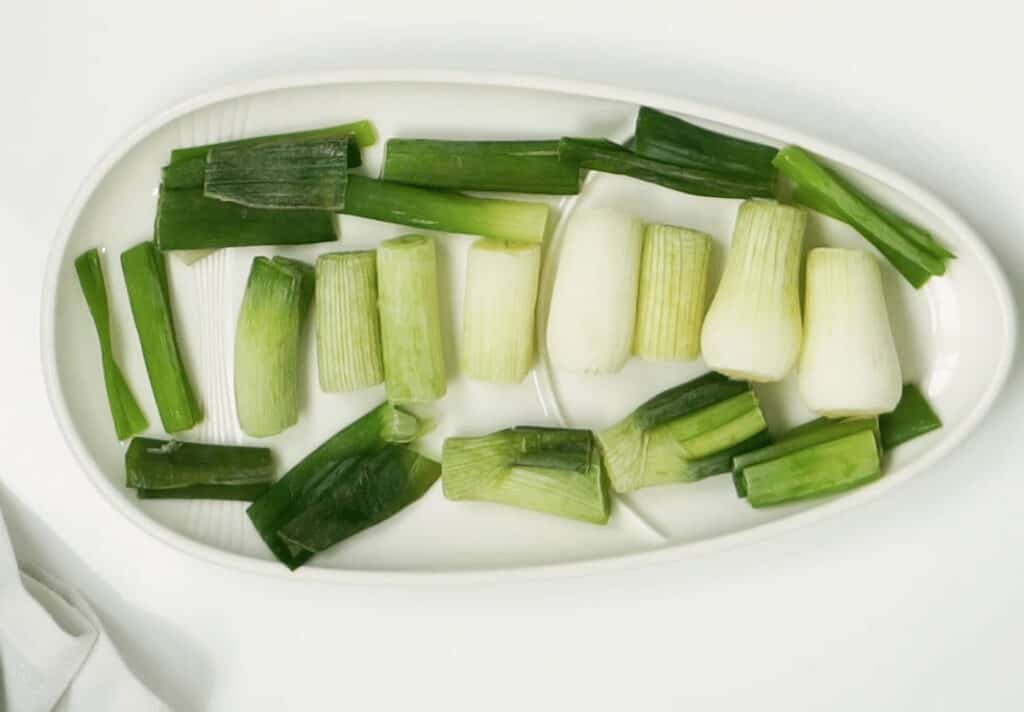
Do Leeks Freeze Well?
Yes, I’ve always found that leeks freeze particularly well.
As I’ve mentioned many times already, blanching is the crucial part of freezing leeks. If you don’t blanch leeks, then you will notice the flavour and texture both degrade rapidly.
If, however, you do blanch them, then you’ll find leeks freeze exceptionally well and will last for up to 10 months.
Blanch, Blanch, Blanch!
I don’t know how many times I need to go on about it but blanching is key. I know it involves an extra pot and a bowl of water but the improvement in quality you’ll get is well worth the effort.
FAQs
You can freeze leeks without blanching them, but they will not last as long in the freezer or taste as good. Blanching will lock in flavour, texture and colour.
Leeks can be stored in the refrigerator. Keep them whole and unwashed in a plastic bag, and they should last for about two weeks.
Leeks can have dirt and sand trapped between their layers. To clean them, trim off the root end and the dark green tops. Cut them lengthwise and rinse under running water, separating the layers to remove any dirt.
You can substitute leeks for onions in many recipes except for the most discerning palates. They have a milder flavor, so you may need to adjust the quantity.
Sources
We have verified the information on this page using the following resources:

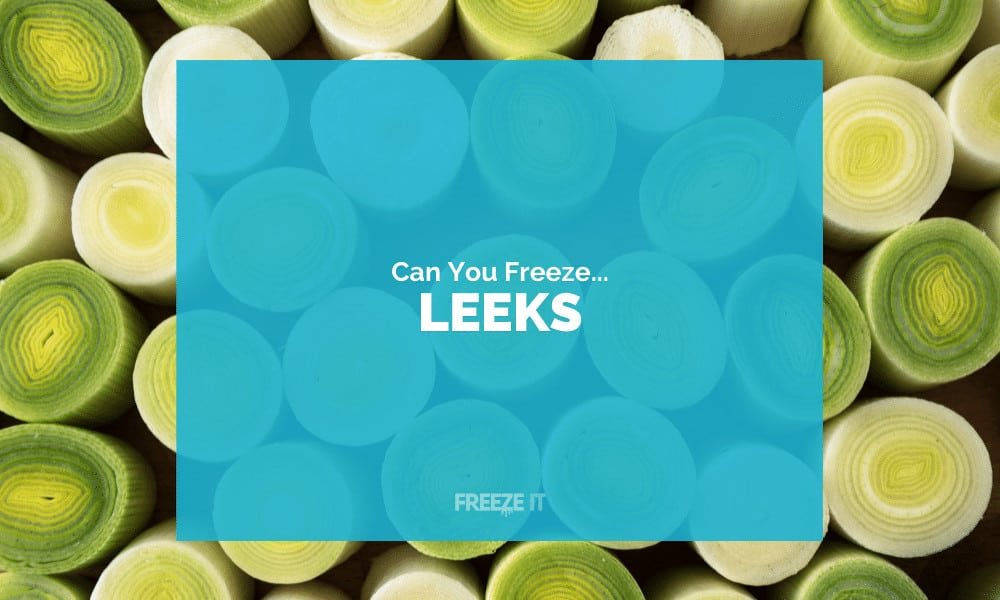
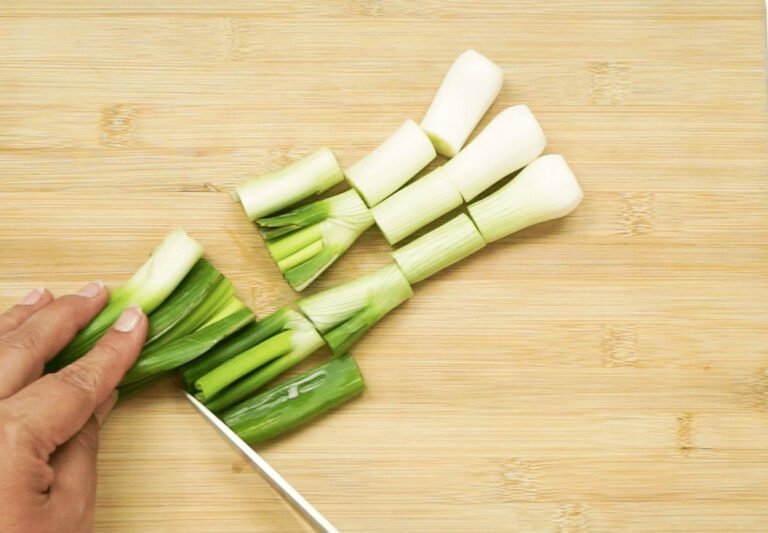
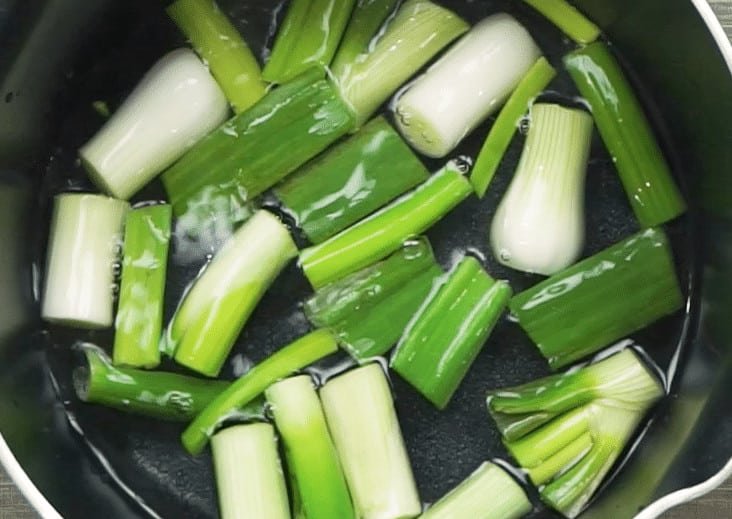
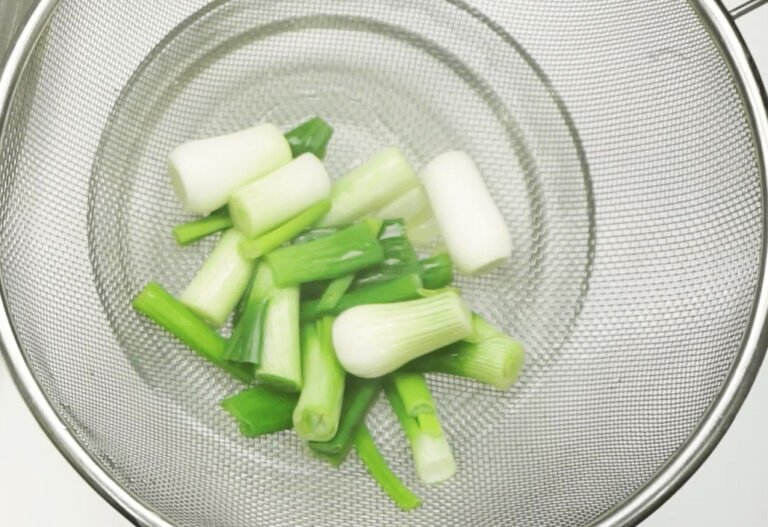

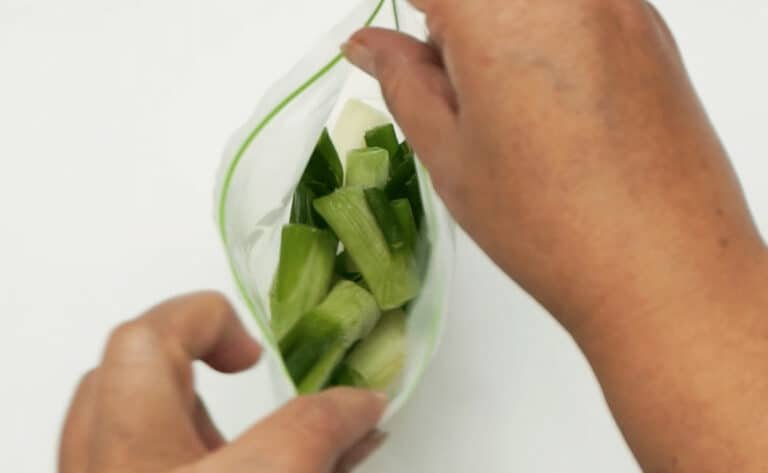



Leeks tend to be full of sandy soil, even into the folds of the whole leek. I believe they would need to be properly washed in cold water, then rinsed thoroughly before freezing.
Sauteing the dark green tops in some butter for about 10 minutes, then adding a cup of broth and simmering on low for about an hour is a tasty side dish (or freeze to add to soups, casseroles, etc. for a rich flavour). I’ve added fresh cilantra and thyme for the last 15 minutes or so for an extra flavour pop.
It’s fun to experiment and satisfying to not waste food when possible.
Thanks for taking the time to comment Alex! Butter and leek always go so perfectly well together. Anything to prevent food waste is always worthwhile.
Just wanted to say thankyou. Really useful article. I’ve grown leeks for the first time and don’t want to waste any. Perfect way of making sure we use them all
Amazing Sally! Glad we could be of help.
Thank you for the freezing advice, regards Lewis. from diane.
Thankyou very useful info being a single pensioner I always have so much left over , so now I don’t have to waste them.
Great to hear this has been helpful Carol!